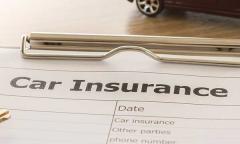Driving regulations
This guide is for people who have epilepsy and covers Group 1 (cars and motorbikes) and Group 2 (buses, coaches and lorries) licences.
Use our interactive guide to find out how the driving regulations apply to you.
When you need to stop driving
I've had a seizure - what do I do?
If you have a driving licence, and have a seizure of any kind, in most cases you must stop driving* and tell the driving agency. You are responsible for telling the driving agency and returning your licence to them.
*If you already have an established pattern of certain types of seizure you may be able to continue to drive. See our information on 'permitted seizures'.
If you have had a seizure, you also need to tell your insurance company as part of your insurance terms and conditions. If you don't tell them, this could invalidate your insurance and may affect your insurance in the future.
Why do I have to stop driving and tell the driving agency?
It is important to stop driving and tell the driving agency because:
- there is a risk you may have a seizure while driving;
- your licence will not be valid and driving without a valid licence is a criminal offence;
- you could be fined up to £1000; and
- your car insurance will not be valid.
Can my doctor tell the driving agency?
If you have a seizure it is your responsibility to tell the driving agency. Guidelines from the General Medical Council (which registers doctors in the UK) tell doctors to explain that it is your legal duty to tell the driving agency, and they will write this in your medical records. If you continue to drive, they can break confidentiality and tell the driving agency. They should tell you if they are going to do this.
How do I tell the driving agency?
In Great Britain there are three ways to tell the DVLA:
- If you have a Group 1 licence, fill in a ‘Declaration of Surrender for Medical Reasons’ form and return it with your licence to the DVLA. If you have a Group 2 licence, you also need to fill in a VOC99 form. It may help to keep a copy of what you send to the DVLA for when you reapply. You may also want to keep a copy of your surrender acknowledgement from the DVLA as proof of eligibility for discounted travel.
- You can complete an FEP1 form (FEP1V for Group 2). If you do this, the driving agency will carry out medical enquiries and may take away your licence (revoke it). They will send you a letter telling you their decision and when you can reapply for a new licence. If you disagree with their decision, you can appeal (see below).
- You can report your condition online. However, this will be treated in the same way as the FEP1 form and your licence may be revoked (see 2 above). The online form is not currently available for group 2 licences or undiagnosed seizures.
You can download the DVLA forms at gov/uk, or you can call them for a copy on 0300 790 6806
In Northern Ireland you can surrender your licence by sending a letter to the DVA explaining why you are surrendering your licence, along with both parts of your licence. If you do not wish to surrender your licence, you can let DVA know by phone or email. They will then send a medical questionnaire for you to complete.
The benefit of surrendering your licence
If you surrender your licence voluntarily, you may be able to start driving again as soon as you reach the seizure-free period, as long as your doctor confirms that you meet the medical standards to drive and the driving agency confirms that it has received your application.
If your licence is revoked, you will not be able to drive until the driving agency issues your new licence and you have received it.
What can I do if the driving agency revokes my licence?
If the driving agency revokes your licence or refuses your application for a new licence you can write to the DVLA to ask them to reconsider, but you must have new information that was not in the original application.
Alternatively, you can appeal against the decision. You need to make your appeal in writing. In England and Wales, this needs to be at a magistrates’ court within six months of the DVLA’s decision, and in Scotland, within 21 days at a Sheriff’s Court. You must tell the DVLA, in writing, that you are going to appeal.
In Northern Ireland, an appeal must be lodged with the appropriate Clerk of Petty Sessions within three months of the date of the issue of the refusal/revocation letter. You must also tell the DVA, in writing, that you are going to appeal.
It is important to get advice before deciding to appeal. If you don't win you may have to pay the driving agency's costs.
How do I get a new licence?
Once you meet the DVLA medical standards to drive, you can apply for a new or first licence.
For a Group 1 licence you will need to fill in a D1 and FEP1 application form.
For a Group 2 licence you need D2 and FEP1V forms and, if you are aged 45 to 65, you will also need a D4 form and you will need to pay a doctor to complete this.
The FEP1 form asks for your permission for the DVLA to contact your doctor if they need any further information before giving you a new licence.
See the GOV.UK website or contact the DVLA to order a D1, D2 or D2/D4 pack and an FEP1 or FEP1V form. D1 packs are also available from post offices.
In Northern Ireland, contact the DVA for a DL1 form. Once they have received this from you, they may send you a medical questionnaire.
If possible, the driving agency will decide whether you can have a driving licence based on the information you provide in these forms.
As the process of issuing a licence can take time, you can apply for your licence up to eight weeks before you would normally be eligible to drive.
You will not usually need to take your driving test again.
What sort of licence will I get?
When you get your new Group 1 licence, it will usually be a medical licence, valid for between one and five years. If you are seizure-free for five years, you may be given a licence which is valid until you are 70. Once the driving agency confirms that you can have a driving licence, you can drive any vehicle that your licence covers.
Can I drive abroad?
To drive abroad, you must meet the medical standards for driving, for the country you visit. If you are coming to the UK and need to apply, or reapply, for a UK licence, then the regulations will apply to you.
More information
If you are not sure whether or how the driving regulations apply to you, you can call our epilepsy helpline to talk through your situation. Alternatively, you can contact the driving agencies directly:
Driving agency in Great Britain
- Drivers' Medical Group, DVLA, Swansea SA99 1DF
- 0300 790 6806 (medical enquiries)
- DVLA
Driving agency in Northern Ireland
- Driver & Vehicle Agency, County Hall, Castlerock Road, Waterside, Coleraine BT51 3TB
- 0300 200 7861
- DVA
Information produced: May 2023
What the driving regulations mean for you
This information is for people who have epilepsy and covers Group 1 (cars and motorbikes) and Group 2 (buses, coaches and lorries) licences.
Car insurance
If you stop driving due to a seizure, you need to tell your insurance company as part of your insurance terms and conditions. If you don't tell them, this could invalidate your insurance and may affect your insurance in the future.
Driving agencies including the Driver and Vehicle Licensing Agency (DVLA)
If you've had a seizure you must tell the driving agency - the Driver and Vehicle Licensing Agency (DVLA) in Great Britain, or the Driver Vehicle Agency (DVA) in Northern Ireland. You will also have to tell your insurance company.



